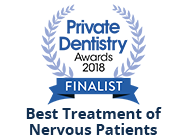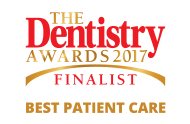
Dr Narinder Dhadwal
BDS (Lond) MJDF RCS (Eng)
MClinDent Perio (Lond)
Diploma in Advanced Clinical
Periodontology (Lond),
MPerio RCS (Edin)
Specialist in Periodontics
GDC 114919
Narinder is a Specialist Periodontist based in private practice. She qualified from St. Bartholomew’s & The Royal London School of Medicine and Dentistry, Queen Mary, University of London in 2007. During her studies she was awarded the Harold Fink Prize for outstanding academic achievement. She then went on to work extensively in general practice and successfully completed her MJDF Diploma from the Royal College of Surgeons of England in 2009.
In 2014 Narinder completed her 3-year postgraduate training in Masters of Clinical Dentistry in Periodontology and Implants at The Royal London Hospital and gained her Membership in Periodontics from the Royal College of Surgeons of Edinburgh in 2015. During her specialist training, Narinder received an award from the British Society of Periodontology (BSP) and presented some of her work at the International Association of Dental Research (IADR) and the British Society of Restorative Dentistry (BSRD). She was also involved in supervising and examining undergraduate students at the Royal London Hospital and was also the Specialist Training Committee (STC) Representative for Periodontology.
In 2018 Narinder became a Fellow of the International Team for Implantology. She is also a visiting lecturer at Eastman CPD and currently a committee member for the Young International Team of Implantology (YITI).
Her clinical interests include the treatment of gum and peri-implant diseases and surgical periodontal treatment in particular periodontal plastic surgery for the treatment of gum recession.
- Non Surgical Periodontics
- Surgical – resective, regenerative periodontics
- Crown Lengthening
- Mucogingival root coverage procedures
- Treatment of Peri-implant disease
What is periodontal?
Periodontics is a specialised type of treatment which allows us to care for and look after your gums enabling us to keep them healthy and save teeth that would potentially be lost due to periodontal disease and infection.
What is periodontal disease?
The simplest form of gum disease is gingivitis, which is reversible. The gums are reddened and sometimes bleed on brushing or flossing. What begins as gingivitis may progress to other forms of irreversible disease, known as periodontitis. In this form of disease, the structures which are fundamental foundations for ‘teeth for life’, are damaged by the bacterial plaque travelling below the gum line causing the gum to pull away from the tooth, forming “pockets”. The periodontal ligament (the attachment between the tooth and gums) and the bone support of the teeth are destroyed. There are different types of chronic inflammatory periodontal disease (CIPD). It is known that some people are more susceptible to more aggressive variants of the disease.
Periodontal disease can affect one tooth or many teeth. The damage caused to the bone and gums is irreversible, but treatment and aftercare can prevent further harm. In some cases other medical problems are linked to severe gum disease.
What if it is not treated?
In most cases, it is possible to successfully treat periodontitis without lasting effects, especially in the earlier stages of the disease. If left untreated, the teeth will continue to lose their supporting jawbone and gums and eventually lead to tooth loss. In addition, untreated periodontitis increases your risk of developing systemic diseases.
Gum disease can present itself in many ways:
- wobbly teeth
- moving/drifting teeth
- bleeding gums
- infections and pain
- halitosis (bad breath)
- receding gums
- bad taste
Who will treat me and help to save my smile?
Your dentist will refer you to a Specialist Periodontist who has undergone advanced training and is experienced in treating disease in your mouth. Periodontic care not only helps you combat gum disease, which prevents tooth loss, but recent scientific evidence points towards a possible link to heart disease and other illnesses.
What happens next?
Once we have your details we can arrange an initial consultation. The Specialist Periodontist will assess the tooth support of all your teeth. They will assess the plaque levels and evaluate the activity and extent of your periodontal disease. Radiographic examination of your teeth will give a picture of the prognosis (life) of your teeth. All findings are discussed with you. We will discuss your treatment options, the number and length of visits required, likely outcome as well as costs involved. We will then draw up a mutually agreed treatment plan. We endeavour always to always work closely with you and provide you with the most appropriate advice and treatment tailored to your individual needs for long-term retention and restoration of your teeth and gums. If you have been referred to us, we will send a report back to your dentist.
Maintenance care?
The foundation of all periodontal therapy is good maintenance. All treatment programmes are followed by long term maintenance regimes with the dentist or hygienist. The maintenance with the hygienist prevents relapse. This can either be carried out at your own practice or here at Aspects Dental and Referral. Detailed annual reassessments by your Specialist Periodontist are required with charts to ensure that disease activity is monitored and kept under control.
Finally…
Periodontic care helps to save many thousands of teeth as well as restoring diseased and unhealthy smiles every day of the year. The care is safe and effective and undertaken by specialists who are fully trained. By being referred to Aspects Dental and Referral means you have the chance of protecting your smile for the future –We look forward to helping you smile again with confidence.















